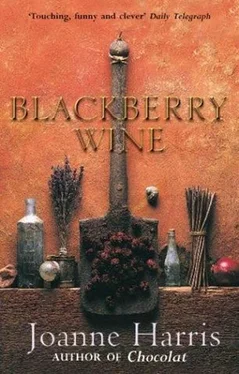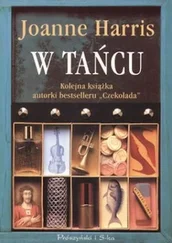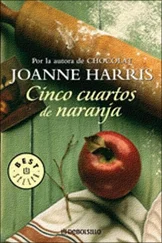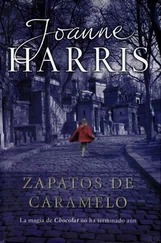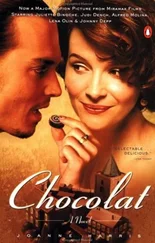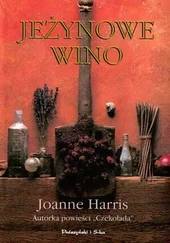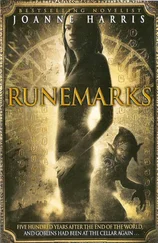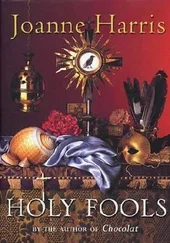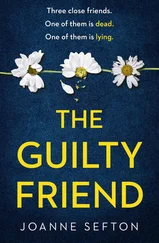He let his temper run freely then, kicking again at the banking so that earth and grass showered into the water. Some of it flew at Gilly, too, spattering her jeans and her embroidered shirt.
‘Stop it, for crying out loud,’ said Gilly flatly. ‘Stop being so sodding childish.’
It was true, he thought, he was being childish, and to hear it from her enraged him. That she should accept their separation with such ease, such indifference. Something yawned blackly inside Jay’s head, yawned and grimaced.
‘Fuck it, then,’ he said. ‘I’m off.’
Feeling slightly dizzy he turned and walked off up the banking towards the canal towpath, sure she’d call him back. Ten paces. Twelve. He reached the towpath, not looking back, knowing she was watching. He passed the trees, where she couldn’t see him, and turned, but Gilly was still sitting where she’d been before, not watching, not following, just looking down into the water, hair over her face and the crazy silver scrawl of the rain fanning down from the hot summer sky.
‘Fuck it then,’ Jay repeated fiercely, wanting her to hear. But she never turned, and at last it was he who turned away and began to walk, feeling angry and somehow deflated, towards the bridge.
He often wondered what might have happened if he had gone back, or if she had looked up just at that moment. What might have been saved or averted. Certainly the events at Pog Hill might have been very different. Perhaps he could even have said goodbye to Joe. As it was, though he did not know it at the time, he would not see either of them again.
Lansquenet, May 1999
HE HAD NOT SEEN JOE SINCE THE DAY AFTER MIREILLE’S VISIT. At first Jay felt relieved by his absence, then as days passed he grew uneasy. He tried to will the old man to appear, but Joe remained stubbornly absent, as if his appearances were not a matter of Jay’s choosing. His leaving left a strangeness behind, a bereavement. At any moment Jay expected him to be there, in the garden, looking over the vegetable patch; in the kitchen, lifting the lid of a pan to find out what was cooking. He was aware of Joe’s absence as he sat at his typewriter, of the Joe-shaped hole in the centre of things, of the fact that, try as he might, he could not seem to get the radio to pick up the oldies station which Joe found with such everyday ease. Worse, his new book had no life without Joe. He no longer felt like writing. He wanted a drink, but drunkenness merely accentuated his feeling of loss.
He told himself that this was ridiculous. He could not miss what was never there in the first place. But still he could not shake off the feeling of something terribly lost, terribly wrong.
If only you’d had some faith .
That was really the problem, wasn’t it? Faith. The old Jay would have had no hesitation. He believed everything. Somehow he knew he had to get back to the old Jay, to finish what they had left unfinished, Joe and he, in the summer of ’77. If only he knew how. He would do anything, he promised himself. Anything at all.
Finally, he brought out the last of Joe’s rosehip wine. The bottle was dusty from its time in the cellar, the cord at its neck straw-coloured with age. Its contents were silent, waiting. Feeling self-conscious, but at the same time oddly excited, Jay poured a glassful and raised it to his lips.
‘I’m sorry, old man. Friends, OK?’
He waited for Joe to come.
He waited until dark.
In the cellar, laughter.
JOSÉPHINE MUST HAVE SPREAD THE WORD ABOUT HIM AT LAST. JAY found people becoming more friendly. Many of them greeted him as he passed, and Poitou in the bakery, who had spoken to him only with a shopkeeper’s politeness before, now asked about his book and gave him advice on what to buy.
‘The pain aux noix is good today, Monsieur Jay. Try it with goat’s cheese and a few olives. Leave the olives and the cheese on a sunny window-ledge for an hour before you eat them to release the flavours.’ He kissed his fingertips. ‘ That ’s something you won’t find in London.’
Poitou had been a baker in Lansquenet for twenty-five years. He had rheumatism in his fingers, but claimed that handling the dough kept them supple. Jay promised to make him a grain pack which would help – another trick of Joe’s. Strange, how easily it all came back. With Poitou’s approval came more introductions – Guillaume the ex-schoolteacher, Darien who taught the infants’ class, Rodolphe the minibus driver who took the children to school and brought them home every day, Nénette who was a nurse in the nearby old people’s home, Briançon who kept bees at the other side of Les Marauds – as if they were merely waiting for the all-clear to indulge their curiosity. Now they were all questions. What did Jay do in London? Was he married? No, but surely someone, héh ? No? Astonishment. Now suspicions had been allayed they were insatiably curious, broaching the most personal of topics with the same innocent interest. What was his last book? How much exactly did an English writer earn? Had he been on television? And America? Had he seen America? Sighs of rapture over the reply. This information would be eagerly disseminated across the village over cups of coffee and bottles of blonde , whispered in shops, passed from mouth to mouth and elaborated upon each time in the telling.
Gossip was currency in Lansquenet. More questions followed, robbed of offence by their ingenuousness. And I? Am I in your book? And I? And I? At first Jay hesitated. People don’t always respond well to the idea that they have been observed, their features borrowed, their mannerisms copied. Some expect payment. Others are insulted by the portrayal. But here it was different. Suddenly everyone had a story to tell. You can put it in your book, they told him. Some even wrote them down – on scraps of notepaper, wrapping paper, once on the back of a packet of seeds. Many of these people, especially the older ones, rarely picked up a book themselves. Some, like Narcisse, had difficulty reading at all. But still the respect for books was immense. Joe was the same, his miner’s background having taught him from an early age that reading was a waste of time, hiding his National Geographics under the bed, but secretly delighted by the stories Jay read to him, nodding his head as he listened, unsmiling. And though Jay never saw him read more than Culpeper’s Herbal and the odd magazine, he would occasionally come out with a quote or a literary reference which could only have come from extensive, if secret, study. Joe liked poetry in the same way he liked flowers, hiding his affection almost shamefacedly beneath a semblance of disinterest. But his garden betrayed him. Pansies stared up from the edges of cold frames. Wild roses intertwined with runner beans. Lansquenet was like Joe in this. There was a thick vein of romance running through its practicality. Jay found that almost overnight he had become someone new to cherish, to shake heads over in bewilderment – the English writer, dingue mais sympa, héh! - someone who provoked laughter and awe in equal doses. Lansquenet’s holy fool. For the moment he could do no wrong. There were no more cries of Rosbif! from the schoolchildren. And the presents. He was overwhelmed with presents. A jar of comb honey from Briançon, with an anecdote about his younger sister and how she once tried to prepare a rabbit – ‘after over an hour in the kitchen she flung it out of the doorway shouting, “Take it back! I can’t pluck the damn thing!” ’ and a note: ‘You can use it in your book.’ A cake from Popotte, carried carefully in her postbag with the letters and balanced in her bicycle basket for the journey. An unexpected gift of seed potatoes from Narcisse, with mumbled instructions to plant them by the sunny side of the house. Any offer of payment would have caused offence. Jay tried to repay this stream of small kindnesses by buying drinks in the Café des Marauds, but found he still bought fewer rounds than anyone else.
Читать дальше
